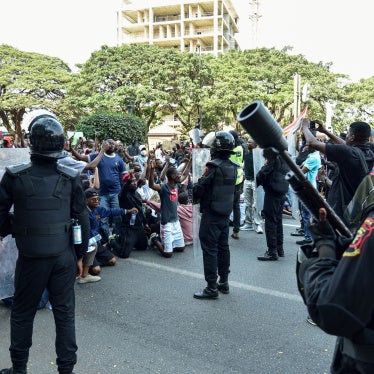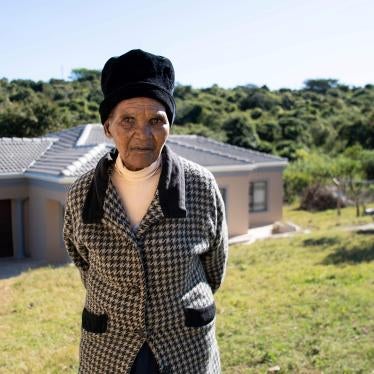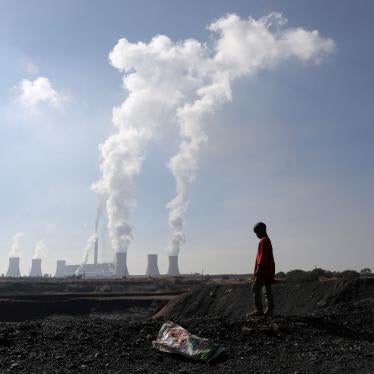(New York) – South Africa should respond to the stark new picture of Syria’s humanitarian crisis by working with Brazil and India for improved access to humanitarian aid, including over Syria’s borders, Human Rights Watch said today.
In a briefing to the United Nations Security Council yesterday, UN Under Secretary-General Valerie Amos said the humanitarian catastrophe in Syria was reaching “the point of no return,” with 6.8 million people in need, 4.25 million internally displaced, and 1.3 million refugees in neighboring countries. Amos added that the most urgent needs were in opposition-held areas.
At the end of yesterday’s deliberations at the Security Council, the Rwandan ambassador, who is presiding over the Council this month, read aloud a statement underlining, “the need to facilitate the provision of humanitarian assistance through the most effective ways, including where appropriate across borders.”
The Security Council, facing opposition from permanent members Russia and China, had previously refrained from calling on the Syrian government to allow the UN to transport humanitarian aid directly over Syria’s borders, including from Turkey, into opposition-held areas where many civilians are in dire need of help.
Brazil, Russia, India, China, and South Africa issued a statement at the end of their BRICS summit in late March calling for, “immediate, safe, full and unimpeded access to humanitarian agencies to all in need of assistance” in Syria. While direct provision of aid across all of Syria’s borders is central to fulfilling this goal, the BRICS declaration did not expressly call on Syria to allow direct provision of humanitarian aid across its borders.
Human Rights Watch called upon Brazil, India, and South Africa to speak with a common voice on the importance of providing humanitarian aid directly to Syrians in need, and to urge their BRICS allies, Russia and China, to explicitly support such aid at the Security Council.
“There is no justification for keeping humanitarian aid from going directly to people who need it in Syria,” said Carroll Bogert, deputy executive director for external relations at Human Rights Watch. “Yesterday’s statement at the Security Council is a good first step. The South African government, along with Brazil and India, should engage with members of the UN Security Council to be more explicit in supporting humanitarian relief efforts across borders, and to call on Syria to allow such aid.”
Syria has permitted some “cross-line” aid deliveries that originate in Damascus and then are taken to opposition-held areas. But Amos described how the UN was forced to get sign-off by two Syrian government ministers for each truck that would travel more than 300 kilometers, sometimes through 50 separate checkpoints – half of them government controlled – to reach those in need in opposition-held areas. She noted that the more direct route for such shipments from the Turkish border would only be 50 kilometers.
Some private charities are providing humanitarian aid to Syria without going through Damascus, but UN agencies are prevented from crossing a sovereign border without permission of the government under principles set by the UN General Assembly. Involvement of the UN in the aid operations is critical to ensuring an effective, comprehensive, and coordinated relief effort, Human Rights Watch said.
“Nearly one-third of Syria’s population is in urgent need of humanitarian aid,” said Bogert. “South Africa needs to raise its voice in their support.”








